Ashes 2015: How Australia cricket players rate after losing the urn to England
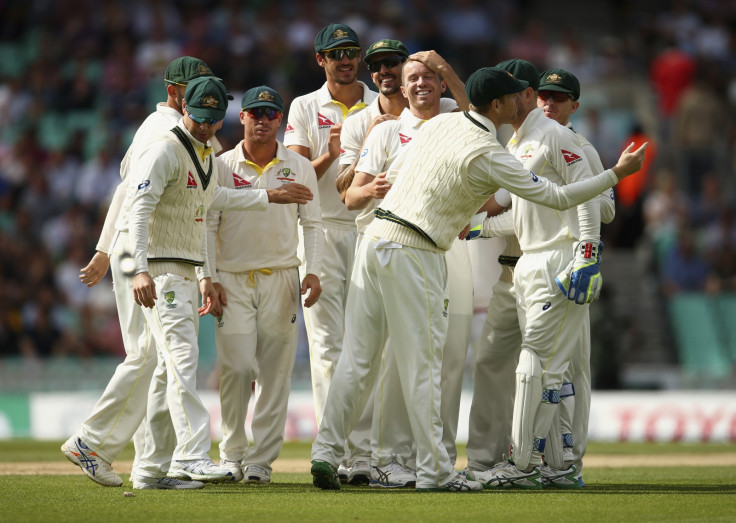
Michael Clarke - 3/10
Not surprisingly Clarke's final series as an international cricketer, the New South Wales right-hander was unable to mark it with a first series win in England. Woeful with the bat with an average of just 16.50, Clarke was also ineffectual as a captain, failing to manage left-armer seam pair Mitchell Johnson and Mitchell Starc, while his over aggressive fields helped England accumulate runs quickly. Nevertheless, will be remembered as one of Australia's finest skippers.
Brad Haddin - 2/10
The only successful counter-attack launched by either team during the series was started by Haddin spurning the chance to dismiss Joe Root in Cardiff, and it remains one of the defining moments of the series. No-longer the scourge of England with the bat, personal problems saw him miss the Lord's Test before Peter Nevill was retained for the final three matches. Retirement must be imminent.
Josh Hazlewood - 6/10
He was trusted with the new ball ahead of Johnson on his Ashes debut, and as the only genuine right-arm quick for much of the series, had plenty of responsibility on his shoulders. He provided good shape and swing in each of his four Tests, but lacked a defining spell which influenced an innings and rewarded his perseverance. One of the new breed under Steve Smith's reign.
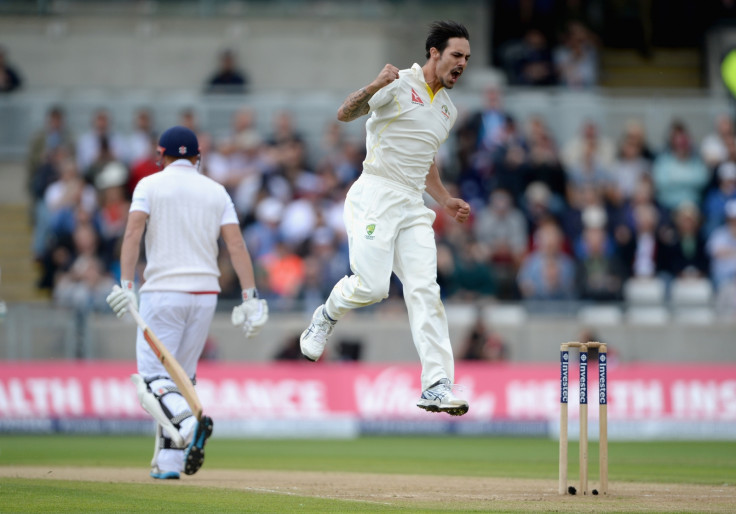
Mitchell Johnson - 6/10
He showed glimpses of the ferocious pace and intimidation which blew England away during the 5-0 whitewash Down Under, but they were too rare to inspire Australia. Spells at Lord's and Edgbaston - where he took his 300th Test wicket - were examples of fast bowling at its very best. May elude to his miss-management by Clarke behind his failure to record more than 15 wickets. Was a constant source of ridicule from the crowd, particularly at Edgbaston.
Nathan Lyon - 6/10
Not an influential figure until The Oval Test where he spun Australia to victory, sparking England's first innings collapse with a brilliant ball to get Alastair Cook. Otherwise, the short matches and slow wickets ensured Lyon was unable to give Australia control or penetration, though much of that was taken out of his hands. Another key figure going forward.
Mitchell Marsh - 6/10
Another player to fall victim to miss-management from the Australia selectors, who were wrong to make Marsh junior wait until Lord's for his first appearance of the series, only to drop him in place of brother Shaun at Trent Bridge. Bowled beautifully at The Oval where he took 3 for 30 but with the bat he was a walking wicket and finished with less runs than Adam Lyth and Shane Watson.
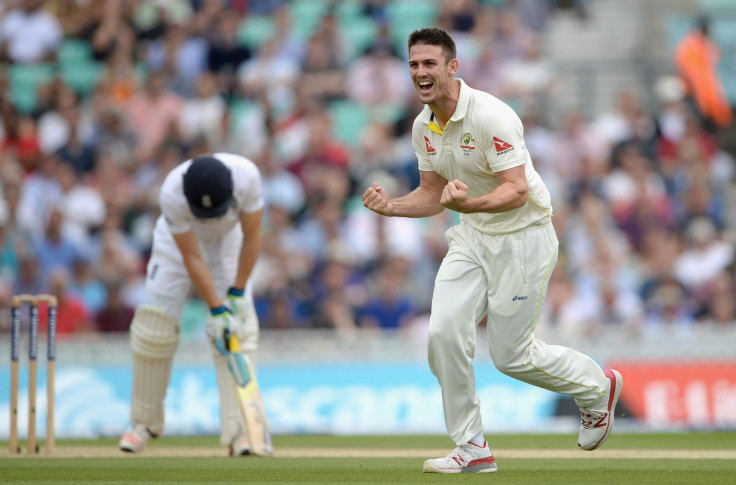
Shaun Marsh - 3/10
Called up to beef up Australia's batting order at Trent Bridge but only Peter Siddle scored fewer runs in the entire series. Two soft dismissals followed in Nottingham, once without scoring to cap what is likely to be his final Test appearance. Will surely be among a raft of players dismissed by selectors in the post-mortem.
Chris Rogers - 7/10
The most consistent batsman across both teams and finished fractionally short of ending his final series as the top run-scorer. Followed up missing out on three figures in Cardiff - though he did make a record-equalling seventh successive fifty - with a century at Lord's as his knowledge of English conditions came to the fore. Recovered from suffering a concussion at Lord's to play the remainder of the series; an example of the resilience Australia will miss from the 37-year-old.
Peter Siddle - 7/10
Probing lines outside off-stump meant Siddle was arguably Australia's most effective and controlling bowler of the series, yet was restricted to just one appearance at The Oval, in another selection mistake. The 30-year-old might not have been up to a five-match series, but his discipline would have been treasured in Cardiff and Edgbaston as direct replacement for the retired Ryan Harris.
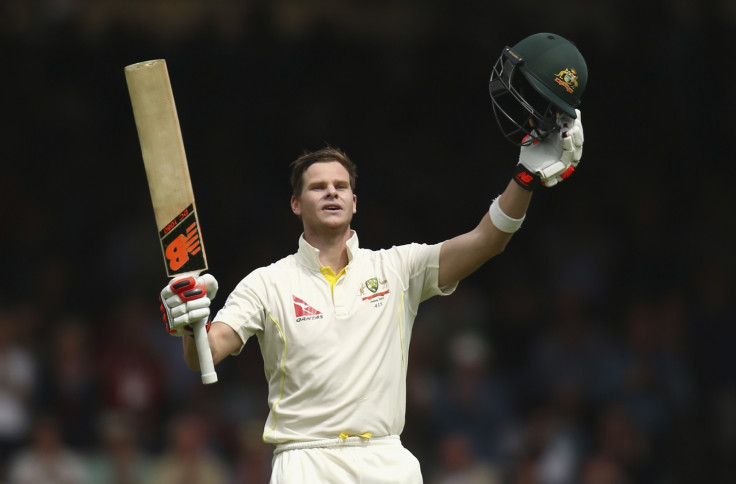
Steve Smith - 6/10
During a series where batsmen were cannon-fodder at times, Smith's performances were admirable if not sporadic. Smith made his highest Test score and maiden double century with 215 at Lord's, and another hundred followed in another winning cause on his return to London. However, failures when the ball seamed and moved sideways exposed his technique and saw him demoted as the Test cricket's number one batsman, with his reputation damaged.
Mitchell Starc - 6/10
Starc cannot claim to have been misused like Johnson or underplayed like Siddle; the reality is the revelation of the 50-over World Cup failed to replicate his best despite conditions being to his liking. The left-armer's radar was often askew and though only Stuart Broad took more wickets in the series, his average of 30.50 told the true story.
Adam Voges - 4/10
Voges' inclusion in the Australian middle-order was the cricketing equivalent of using a plaster to cover a gun-shot wound. As the tourists haemorrhaged edges for England's slip catchers, Voges was the most hospitable. Two half centuries in his final two Ashes innings salvaged some pride as he discovered some fight, but it was too little, too late. Unlikely to remain even for Bangladesh.
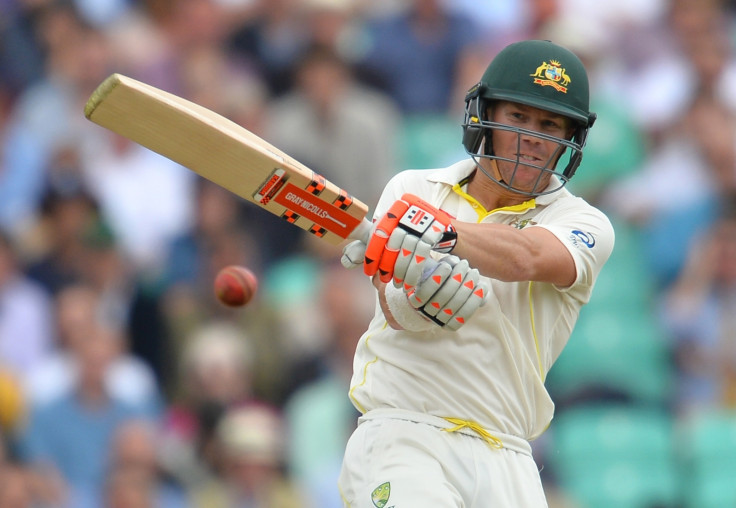
David Warner - 7/10
The teetotal Australian opener stayed out of trouble and the back pages to become one of the few Australian batsman to emerge from the tour with any credit. Too often though the 28-year-old contributed to his own downfall, throwing away near-certain centuries on no-more than four occasions, succumbing to nemesis Moeen Ali at Lord's and The Oval.
Shane Watson - 2/10
A surprising inclusion in the team for the first Test, yet there was nothing shocking about his performance in Cardiff. Watson got two starts but was trapped LBW in both innings, taking the number of dismissals by that method to 29. Ineffectual with the ball, you wonder whether the 34-year-old will get another chance at Test level, after missing the last four matches.
© Copyright IBTimes 2025. All rights reserved.






















